KU PharmTox Newsletter - Fall 2021
Note from the Chair
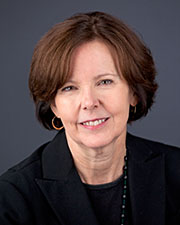 We are back on campus for the 2021-2022 academic year! It’s great to be back in the classroom and to be on campus to welcome our new graduate students to the department. We had a terrific picnic to welcome our four new Ph.D. students to the program. The faculty, students, and staff are very glad to be back on campus and able to interact with each other face to face once again! We are again able to have invited guests and have two scientific seminars and one Beyond the Lab guest visiting us this semester. We are still taking precautions but with so many vaccinated, we are happy to be present again! I hope you enjoy the newsletter and consider visiting us in the future. We would love to have you come and share your stories with us either in the scientific seminar series or in our Beyond the Lab program that lets students learn about careers outside of academics. Stay well and be safe!
We are back on campus for the 2021-2022 academic year! It’s great to be back in the classroom and to be on campus to welcome our new graduate students to the department. We had a terrific picnic to welcome our four new Ph.D. students to the program. The faculty, students, and staff are very glad to be back on campus and able to interact with each other face to face once again! We are again able to have invited guests and have two scientific seminars and one Beyond the Lab guest visiting us this semester. We are still taking precautions but with so many vaccinated, we are happy to be present again! I hope you enjoy the newsletter and consider visiting us in the future. We would love to have you come and share your stories with us either in the scientific seminar series or in our Beyond the Lab program that lets students learn about careers outside of academics. Stay well and be safe!
Nancy Muma
Lab Spotlights
Du Lab
Dr. Lan Guo, Research Assistant Professor, was recently awarded a KUMC Alzheimer’s Disease Center/Landon Center on Aging Pilot developmental grant in the amount of $60,000. Dr. Guo will oversee all aspects of the project and will be involved in the mitochondrial DNA detection, microglial mitochondrial oxidative stress assay, immunostaining and image analysis. Dr. Guo is very grateful for this grant and feels she would not have been able to receive this award without support from the Higuchi Biosciences Center. Congratulations Dr. Guo!
Rosa-Molinar Lab
Congratulations to Irma I. Torres-Vazquez, Graduate Student, for receiving her first grant, a Kansas University Cancer Center (KUCC) Spring Pilot Project titled, “Elucidating and disrupting de novo GBM tumor cell-neuron synapses.” This grant is based on her dissertation research.
Subramanian Lab
Dr. Jai Subramanian, received pilot grant funding from KUMC Alzheimer's Disease Research Center for his project in collaboration with Dr. Dobrowsky. Dr. Subramanian and Dr. Dobrowsky plan to study mitochondrial impairments in vivo in mouse models of Alzheimer's disease. Congratulations!
Zhao Lab
In the News
Better Glucose Metabolism May Confer Protective Effect of ApoE2, Society of Neuroscience, January 8, 2021
Professional Service
- NIH NOMD Study Section, November 2021
- NIH SEP 2022/01 ZAG1 ZIJ-1(J2) – “Early AD Pathological Mechanisms”, October 2021
- Czech Republic Science Foundation Grant Review, 2021
- NIH NOMD Study Section, March 2021
Lab Publications
Human ApoE Isoproteins Are Differentially Sialylated and Sialic Acid Addition Modulates ApoE-Aβ Interaction and Aβ Fibrillation.
Moon HJ, Haroutunian V, Zhao L. Neurobiol Dis 2021 (in revision)
Sialometabolism in Brain Health and Alzheimer’s Disease.
Rawal, P, Zhao L. Frontiers Neurosci, 15: 648617, 2021
Sporadic Alzheimer’s Triad: Age, Sex, and ApoE.
Zhang X, Rawal P, Wu L, Zhao L. In Assessments, Treatments and Modeling in Aging and Neurological Disease: The Neuroscience of Aging. 2021, Ed. Colin R. Martin, Victor R. Preedy and Rajkumar Rajendram. Elsevier Inc.
Poster Presentations at the Upcoming SfN 50th Annual Conference
Moon, HJ., Herring, S.K., Rawal, P. and Zhao, L. Brain Mitochondrial Clusterin (MitoCLU) and Its Potential Role in the Regulation of F1Fo-ATP Synthase. In: The Society for Neuroscience 50th Annual Meeting, Chicago, IL, November 2021
Rawal, P., Moon, HJ. and Zhao, L. Regulation of Astrocyte-Microglia Crosstalk and Neuroinflammation by Clusterin. In: The Society for Neuroscience 50th Annual Meeting, Chicago, IL, November 2021
Zhang, X., Moon, HJ., Siahaan, T.J. and Zhao, L. ApoE2 Reverses Glycolytic Deficit in ApoE4 Models. In: The Society for Neuroscience 50th Annual Meeting, Chicago, IL, November 2021
Graduating Student Updates
We are proud to announce the recent graduations of five students in the Pharmacology & Toxicology department. Congratulations to all of these graduates!
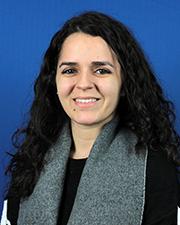
Nadine Alshakhshir
While completing her M.S. degree at KU, Nadine Alshakhshir worked in Dr. Liqin Zhao’s lab. She is now pursuing her Ph.D. degree at the University of Florida, School of Pharmacy in the Pharmacodynamics department.
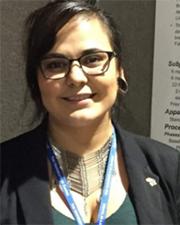
Luanne Hale
Luanne Hale received her M.S. in fall 2020 and Dr. Adam Smith was her advisor. Ms. Hale is currently a professional research assistant for Dr. Ryan Bachtell in the Department of Psychology and Neuroscience at the University of Colorado - Boulder.

Austin Holt
Austin Holt earned his M.S. degree while under the instruction of Dr. Jai Subramanian. Mr. Holt is now an Associate Scientist working on a gene therapy team for Biogen located in Cambridge, Massachusetts.
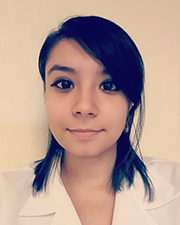
Yssa Rodriguez
Yssa Rodriguez graduated with her Ph.D. and she is currently working as a postdoctoral researcher at the University of Kansas Health System, Kansas City, Kansas. Dr. Rick Dobrowsky was her advisor.

Yunwanbin Wang
Yunwanbin Wang graduated with her M.S. degree in Dr. Dobrowsky’s lab. Ms. Wang is continuing her education in the Ph.D. program here in the Pharmacology and Toxicology department.
Graduate Student News

Punam Rawal
- Doctoral student Punam Rawal was awarded a 2021 Graduate Scholarly Presentation Travel Award by the KU School of Pharmacy Graduate Studies.
- Ms. Rawal was awarded a 2020-2021 Doctoral Student Research Fund by the KU Office of Graduate Studies.
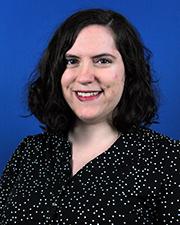
Maria Tickerhoof
- Doctoral student Maria Tickerhoof published the following article:
Hale LH*, Tickerhoof MC*, and Smith AS (2021). Chronic intranasal oxytocin reverses stress-induced social avoidance in female prairie voles. Neuropharmacology 198:108770. doi: 10.1016/j.neuropharm.2021.108770 *co first-author - Ms. Tickerhoof received a Trainee Poster Award from the Society for Behavioral Neuroendocrinology at their annual meeting for her poster titled Investigating the role of corticotropin-releasing hormone neurons of the bed nucleus of the stria terminalis in the regulation of pair bond formation in male and female prairie voles.
- The Trainee Professional Development Award was given to Ms. Tickerhoof from the Society for Neuroscience at the 2021 Global Connectome conference. She presented her poster titled Regulation of stress-induced pair bond formation impairments in the socially monogamous prairie vole (Microtus ochrogaster) by extended amygdala corticotrophin-releasing hormone neurons.
- Ms. Tickerhoof received the Gibbs travel award from the Department of Pharmacology and Toxicology.
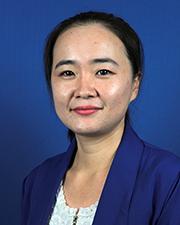
Xin Zhang
- Doctoral student Xin Zhang was awarded a 2021 Graduate Scholarly Presentation Travel Award by the KU School of Pharmacy Graduate Studies.
- She also was first author on two papers published this year:
- Zhang X, Rawal P, Wu L, and Zhao L. (2021). Chapter 7 - Sporadic Alzheimer’s triad: age, sex, and ApoE. In C. R. Martin, V. R. Preedy, & R. Rajendram (Eds.), Assessments, Treatments and Modeling in Aging and Neurological Disease (pp. 65-77): Academic Press.
- Zhang X, Alshakhshir N, Zhao L. (2021). Glycolytic Metabolism, Brain Resilience, and Alzheimer's Disease. Front Neurosci. 15: 662242. doi: 10.3389/fnins.2021.662242.
New Graduate Students

Jamison Burrow
Jamison joined our Ph.D. program this fall after graduating from Harrisburg University of Science and Technology in Harrisburg, Pennsylvania in May.
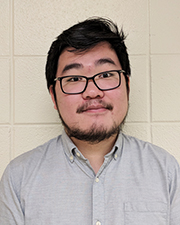
Mingyu He
Mingyu is a new Ph.D. student in the program. He earned his M.S. degree in Pharmaceutical Sciences from the University of Dublin-Trinity in Dublin, Ireland. He would like to contribute to biomedical science and drug development. Mingyu feels drug development is one of the most meaningful businesses at this time and a new generation of medicines and vaccines are needed.

Nicholas (Nick) Pritchett
Nick earned his B.S. in biology from Truman State University in Kirksville, Missouri this past May and he is now part of our Ph.D. program. He has a passion for scientific understanding and a strong desire to learn more about synapse structure and neuropharmacology.

Yunwanbin (Wynn) Wang
Wynn has transferred into our Ph.D. program after graduating from our M.S. program this past summer. Ms. Wang is now working with Dr. Zijun Wang on understanding the role of brain circuits in substance abuse.
Welcome Picnic
Our annual picnic was held at Broken Arrow Park on September 30 to welcome our new students to campus. This gave the students, faculty, and staff a chance to socialize and enjoy the fall weather together. Although rain was in the forecast, the weather cooperated and the rain held off until later in the evening. Everyone enjoyed lots of good food, fun, and fellowship.
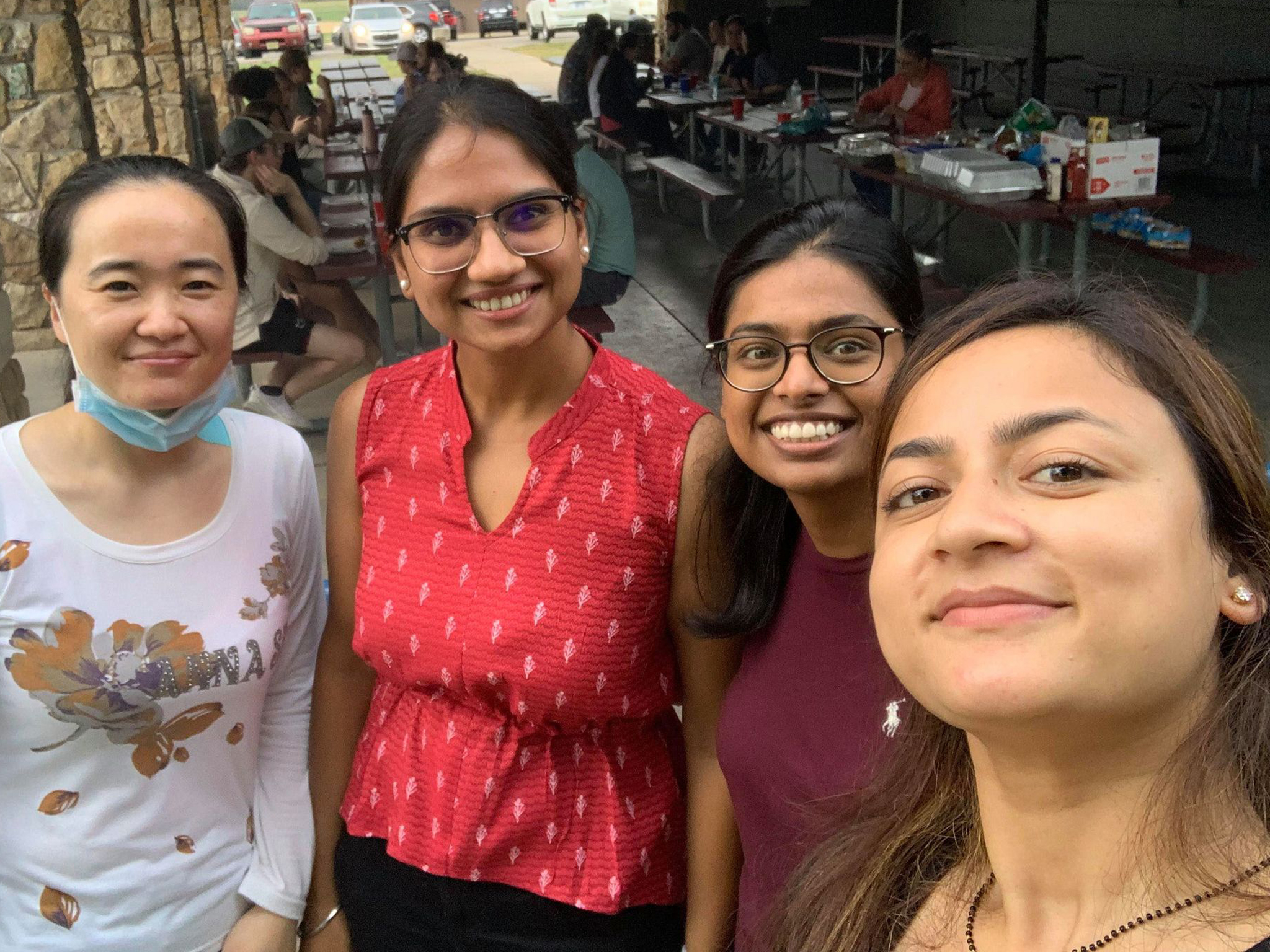
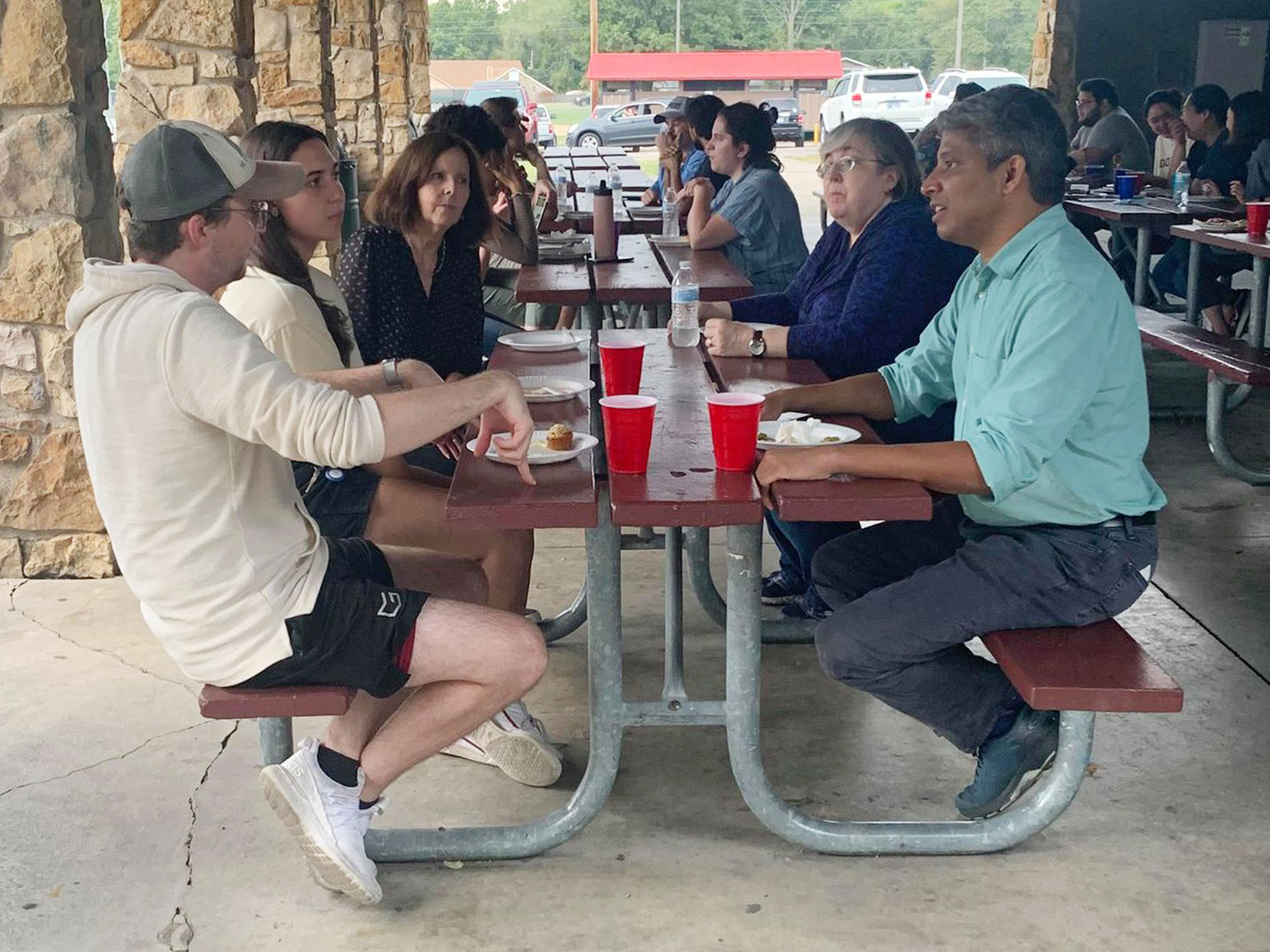
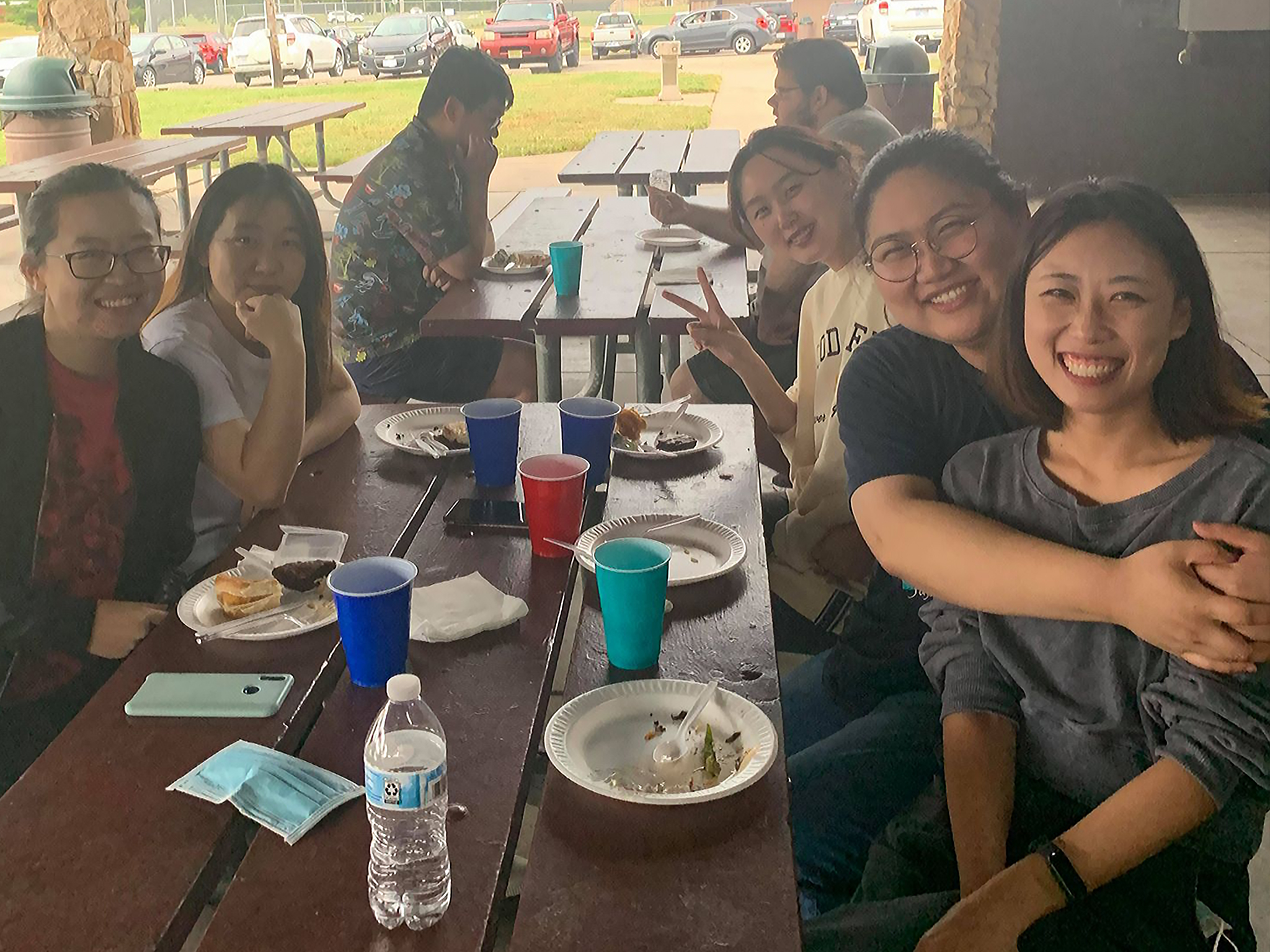
KU Fall 2020 - Three-Minute Competition
We are pleased to announce two of Pharmacology & Toxicology’s Ph.D. students excelled in the KU Fall 2020 three-minute thesis competition organized by the KU Graduate Studies Office.

Punam Rawal
Punam Rawal won the First Prize award ($500) with a talk titled Policing the Police to Treat Alzheimer's Disease (video). Punam represented KU in the 2021 Midwestern Association of Graduate Schools competition in spring 2021.

Maria Tickerhoof
Maria Tickerhoof was one of the finalist in the competition with a talk titled She Loves Me, He Loves Me Not: Investigating the Impact of Stress on Social Bonding (video).
Congratulations Punam and Maria!
From Our Alumni - Rakesh Singh, Ph.D.
 I graduated from KU in 2008 after transferring from Loyola University Chicago, Stritch School of Medicine graduate program with Dr. Muma. Even though I transferred to KU in my fourth year of graduate school, I had tremendous faculty support and encouragement. I had the best dissertation committee with the late Dr. Fowler, who taught me about the role of dopamine in schizophrenia, Dr. Staudinger who was also a co-author on our paper identifying STAT3 as a possible transcription factor for RGS7 protein, and Dr. Carrasco who taught me so much about the 5-HT2A receptor and its role in the frontal cortex of the brain. My training at KU was instrumental and provided the necessary foundation for my profession as a medical educator.
I graduated from KU in 2008 after transferring from Loyola University Chicago, Stritch School of Medicine graduate program with Dr. Muma. Even though I transferred to KU in my fourth year of graduate school, I had tremendous faculty support and encouragement. I had the best dissertation committee with the late Dr. Fowler, who taught me about the role of dopamine in schizophrenia, Dr. Staudinger who was also a co-author on our paper identifying STAT3 as a possible transcription factor for RGS7 protein, and Dr. Carrasco who taught me so much about the 5-HT2A receptor and its role in the frontal cortex of the brain. My training at KU was instrumental and provided the necessary foundation for my profession as a medical educator.
After graduating, I worked extensively in research, did two post-doctoral trainings and also worked in the industry of medical communication. I am currently working as an Assistant Professor of Pharmacology in the College of Osteopathic Medicine at Touro University Nevada. I have been teaching medical pharmacology to medical students, physician assistant students and occasionally graduate students for almost four years now.
When working in academia, you face many challenges and must be flexible with evolving pedagogical fields, such as didactic teaching methods, problem-based learning, team-based learning, case-based learning, flip classroom, and the latest trend is eliminating classroom teaching for short, recorded video presentations and problem-solving sessions. So, to continue to be a part of medical school faculty you are expected to evolve, adapt, and incorporate those changes in your teaching.
In addition to a significant teaching load and extensive administrative responsibilities, you are also expected to engage in research and provide research training to medical students as a medical school faculty. I have great mentors and support of senior faculty members at Touro that makes my job fun and enjoyable. My training in graduate school at KU has certainly made it easy for me to be flexible and adapt. The job of a medical educator is challenging but it is also a lot of fun and you get to work with some of the best and brightest future health care providers. It gives you immense satisfaction that you made a difference in their training in medical school and feel assured that you did your best to graduate very skilled and compassionate doctors and healthcare providers that will serve our communities.
At Touro, I also continue to work and explore the role of JAK-STAT pathway in various inflammatory conditions including stress/inflammation-induced depression and the role of neuroinflammation in the Covid long-hauler patients. I am still interested in the JAK-STAT pathway because of my training in Pharmacology and Toxicology at KU. My time there and the continued support of my PhD adviser, Dr. Muma, made it possible for me to start my career as a medical educator.
Beyond the Lab Seminar Series
Our Beyond the Lab program provides our students, postdocs, and other research professionals in the Department and the School an opportunity to expand their knowledge of career opportunities and advancement.
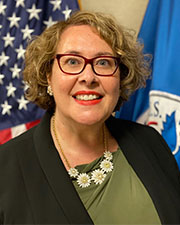
Anna Calcagno, Ph.D., R.Ph.
Division Director, Strategy, Policy, and Program Analytics, Mission Support Office, Federal Emergency Management Agency (FEMA)
Beyond the Ordinary: A Career in Civil Service
Friday, November 12, 2021
Dr. Calcagno earned an M.S. degree in Pharmaceutics from the University of Michigan in 1996 and a Ph.D. in 2003 from the KU Department of Pharmaceutical Chemistry. Since graduation, Dr. Calcagno has worked in various roles for the National Library of Medicine (NLM), the National Institute of General Medical Sciences (NIGMS), the U.S. Department of Health and Human Services (HHS), the National Cancer Institute, and as a Research Fellow in the Pharmacology Research Associate (PRAT) Program. She currently works for the Federal Emergency Management Agency (FEMA).
Scientific Seminar Series
The KU Department of Pharmacology and Toxicology's Scientific Seminar Series features prominent researchers from KU, the United States, and the world.
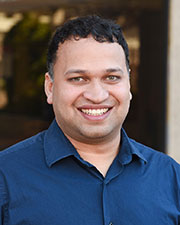
Ram Madabhushi, Ph.D.
Assistant Professor, Psychiatry, Cell Biology, and Neuroscience Department, UT Southwestern Medical Center, Dallas, Texas
Untangling the Roles of DNA Topology and Activity-induced DNA Breaks in Neuronal Physiology
Friday, October 15, 2021
Dr. Madabhushi’s research aims to obtain a comprehensive picture of how genomic stability and chromatin dynamics affect neuronal functions, including learning behaviors, and to apply this knowledge to combat neurological disorders. It is thought that the major cause of tissue dysfunction is damage to the genetic material of cells. The nervous system is vulnerable to genomic instability, and mutations in DNA damage response factors manifest with severe neurological abnormalities. It is still not clear how DNA damage contributes to the development of neurological disorders. The nature of lesions and the sources of DNA damage that are most pertinent to neuronal dysfunction is still unknown.
Dr. Zijun Wang stated, “Dr. Madabhushi’s seminar focused on a very interesting topic---how neuronal DNA breaks contribute to the transcriptional responses to stimuli. Upon stimulation, calcineurin can assist topoisomerase II beta to induce DNA double strand breaks around the promoter or enhancer region of immediate early genes in neurons, which alters local chromatin structures and gene expression. This pathway plays an important role in regulating neuronal function and disruption of this pathway has been implicated in many brain disorders such as Alzheimer’s disease.”

Anna Dunaevsky, Ph.D
Professor, Developmental Neuroscience, Neurological Sciences Department, University of Nebraska Medical Center, Omaha, Nebraska
Neural Dysfunction in Fragile X Syndrome
Friday, October 29, 2021
Dr. Dunaevsky’s research is focused on how brain circuits are formed during development and how they are altered with learning. This is done by studying how the synaptic connections between brain cells change as a motor skill is learned. Because difficulties with motor skill learning is common in children with developmental disorders and autism, Dr. Dunaevsky’s studies of synaptic mechanism of motor skill learning is relevant to these disorders. State-of-the-art microscopy approaches are used to follow the same neurons and synapses at different stages of development and learning in mice. Understanding the neurological mechanisms underlying the learning process is expected to provide important knowledge to develop therapies for cognitive disabilities and autism spectrum disorders.
Faculty Recent Publications
Novologue Therapy Requires Heat Shock Protein 70 and Thioredoxin-Interacting Protein to Improve Mitochondrial Boenergetics and Decrease Mitophagy in Diabetic Sensory Neorons.
Rodriguez YA, Kaur S, Nolte E, Zheng Z, Blagg BSJ, Dobrowsky R. ACS Chem. Neurosci., 12: 3049-3059, 2021.
Type I interferon response-related microglial Mef2c deregulation at the onset of Alzheimer’s pathology in 5xFAD mice.
Xue F, Tian J, Yu C, Du H, Guo L. Neurobiology of Disease, 152: 105272, 2021.
Methionine sulfoxide and the methionine sulfoxide reductase system as modulators of signal transduction pathways: a review
Moskovitz J, Smith A. Amino Acids, 53: 1011-1020, 2021.
Accelerating Biological Insight for Understudied Genes.
Reynolds KA, Rosa-Molinar E, Ward RE, Zhang H, Urbanowicz BR, Settles AM. Integr Comp Biol., May 10. 2021 [Epub ahead of print].
Mitochondrial ferritin attenuates cerebral ischaemia/reperfusion injury by inhibiting ferroptosis.
Wang P, Cui Y, Ren Q, Yan B, Zhao Y, Yu P, Gao G, Shi H, Chang S, Chang YZ. Cell Death and Disease, 12: 447, 2021.
Chronic intranasal oxytocin reverses stress-induced social avoidance in female prairie voles.
Hale LH, Tickerhoof MC, Smith AS. Neuropharmacology, 198: 108770, 2021.
Synaptic Loss in Alzheimer’s Disease: Mechanistic Insights Provided by Two-Photon in vivo Imaging of Transgenic Mouse Models
Subramanian J, Savage J, Tremblay M. Front. Cell. Neurosci. 14: 592607, 2020
Autism risk gene KMT5B deficiency in prefrontal cortex induces synaptic dysfunction and social deficits via alterations of DNA repair and gene transcription.
Wang ZJ, Rein B, Zhong P, Williams J, Cao Q, Yang F, Zhang F, Ma K, Yan Z. Neuropsychopharmacology. 46(9):1617-1626, 2021.
Glycolytic Metabolism, Brain Resilience, and Alzheimer's Disease.
Zhang X, Alshakhshir N, Zhao L. Front Neurosci. 15: 662242, 2021.
The Support of Our Donors Makes All the Difference
Thank you for Supporting the Department of Pharmacology & Toxicology
Private support allows us to provide resources for students and continue the excellence you have come to expect from us. No matter the size, your support can make a profound impact. Even small donations over time can accumulate to create substantial resources for the department. For a lasting impact on the department, major gifts can establish endowed funds that can be named for you or for someone else and provide financial support in perpetuity.
To make a dontation, visit KU PharmTox Give or contact our development director, Beth Bucklin, at bbucklin@kuendowment.org or 785-864-7477.
Pharmacology & Toxicology | University of Kansas School of Pharmacy
Malott Hall, Room 5064, Wescoe Hall Drive, University of Kansas, 66045
pharmtox@ku.edu | 785-864-4002